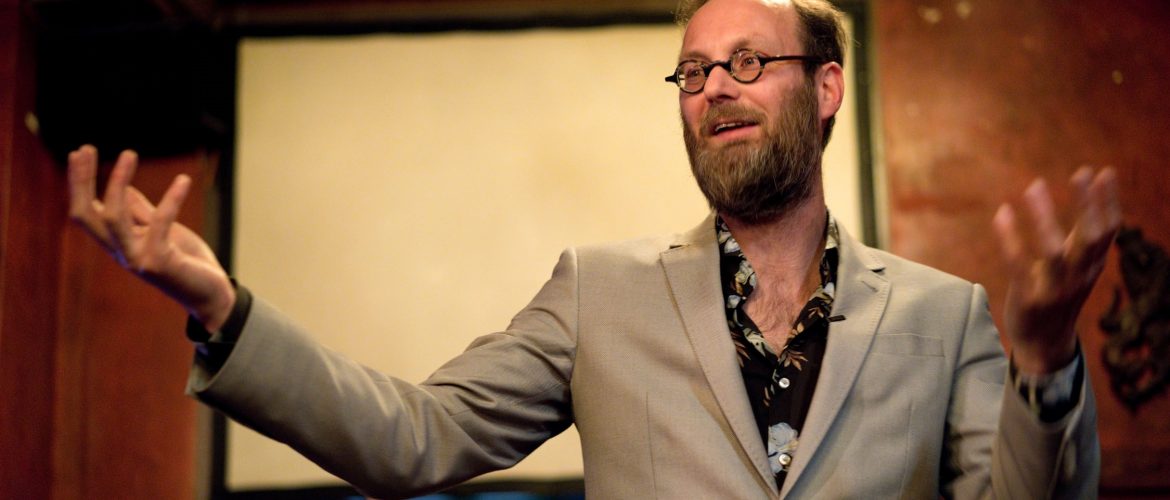Floris’s bio states he is “a philosopher and therefore an atheist”. He is a practical, activist philosopher. He has written a number of books including “Philosophy for a Better World”, “On Green Liberty”, “De vrolijke veganist” and “Hoe komen we van religie af?” In 2017, Floris participated in a television series “To Hell With Your Religion”, in which he lived with a group of people of various religions for two weeks, exploring and critiquing religious ideas.
In these Sentientist Conversations, we talk about the two most important questions: “what’s real?” & “what matters?”
The audio from this conversation will also be on our Podcast – subscribe so you don’t miss it: (most platforms including Anchor).
We discuss:
- The imperative to reduce suffering, human & non-human, present & future
- Growing up in a liberal Catholic environment
- Hiding from Jesus 🙂
- Never believing, then finding out that’s called “atheism”
- Finding the label “Humanism”, adding values
- Studying Zen Buddhism in a Japanese monastery
- Hell isn’t compassionate
- Religious compassion often conditional & restricted & subject to higher priorities (the collective, a god, the church…)
- Individuals can experience, collectives can’t
- Not objectivist, not relativist, but a universalist (e.g. slavery is wrong & it was always wrong & it will always be wrong)
- A universal focus on individual victims
- Peter Singer
- Vegetarianism & veganism
- Finding our ethical blind spots – fighting cognitive dissonance – the role of philosophy
- The shame that not many philosophers are vegan/sentientist. They’re not taking philosophy seriously in their own lives
- Thinking of vegans as weird, then realising they are right
- The importance of humility & open-mindedness
- Preferring religious vegans to atheist meat-eaters, because of victims
- The social challenge of being atheist & vegan at the same time
- The parallels between religious & carnist indoctrination
- Having compassion for people given their indoctrination
- Why Humanists are the most frustrating non-vegans
- Animal ethics & religion as mental kryptonite for otherwise careful thinkers
- Petting zoos as propaganda
- “There are nice vegans & nice atheists but I’m not one :)”
- An angry response can be a sign of engaging with the argument
- Ecocentrism, biocentrism, sentiocentrism
- The capability of experiencing as the core of moral value
- Bentham’s “can they suffer?”
- Degrees of sentience & suffering
- Environmentalism (e.g. WWF) as anthropocentrism in disguise
- Consistency is critical. Avoiding arbitrariness. Criticising all ideas
- Sentientism as part of but also pre-dating Enlightenment thought
- The deep, even pre-human roots of naturalism & morality
- Universalism is OK if it’s about open minded naturalism & broad compassion
- Sentientism as a bulwark against all oppression
- Listen to the individual victim (present and future), not the oppressor
- Being oppressed isn’t an excuse for oppressing others
- Mill’s “On Liberty” – freedom as long as you don’t cause harm
- Overcoming speciesism and presentism. The new frontiers of discrimination. Most people don’t yet care.
- Substratism? The Sentientist themes in the film E.T.
- Hope from the positive achievements of other social change movements
- Compassion can be firm & strident, not weak & appeasing
- Offending oppressors is less important than the suffering of the oppressed
- Speaking for the voiceless
- “Grandad, is it really true that humans used to eat animals?”
You can find Floris’s books on Amazon & here.
Floris is on our “Sentientist wall” – why not join him there in helping to normalise compassionate, rational thinking? Just fill out this simple form.
Sentientism is “Evidence, reason and compassion for all sentient beings.” You can find out more at Sentientism.info.
Everyone interested, Sentientist or not, is welcome to join our community groups. Our main group is here on FaceBook.
Many thanks to Graham Bessellieu for his post-production work on this video. Go follow him (& maybe work with him!) at @cgbessellieu.

